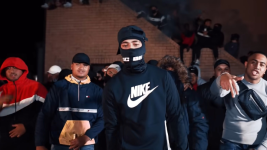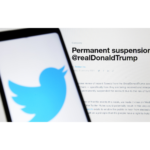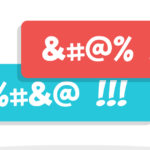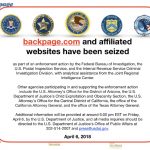NSW Police Force Vows to Bring Down Western Sydney Rappers

The NSW Police Force announced last week that it will now be acting in the capacity of censor when it comes to drill music being produced by rap artists in western Sydney, if the law enforcement agency considers particular songs to be inciting violence.
Acting assistant police commissioner Jason Weinstein spruiked the puritan proposal to the Daily Telegraph on 11 July, claiming the artistic expression of some rappers from Sydney’s less affluent postcodes is “being weaponised to basically inflame conflict”.
Weinstein explains that the police force doesn’t have the “power to stop anything such as concerts or songs or what people post”, so it’s going to pressure online platforms, such as YouTube or Spotify, to take down content it considers to be provoking gang violence.
“Some of the songs appear to be put out there to antagonise the other side and that can lead to retribution,” the acting assistant commissioner told the Murdoch press. “And we are seeing that here.”
This is not the first time state law enforcement has attempted to silence western Sydney drill music, as in 2019, NSW police warned promoters they’d be responsible for any violence resulting from featuring Mount Druitt’s OneFour, which led to the rap group’s gigs being cancelled nationwide.
Only truths approved of
Drill music is a style of rap that emerged out of Chicago in the late 2000s. It soon took root in the UK and from there it caught on in Australia. As to how it differs from other forms of rap, the chief characteristic cited is its gritty and violent lyrics.
NSW police has long linked drill outfits, like OneFour and 21 District, to the so-called postcode wars, which are said to involve rival gangs from different suburbs pitted against one another. And law enforcement is accusing drill artists of heightening these tensions.
Authorities have long taken issue with popular musicians and any considered outrage they might provoke. Rap artists, in particular, have caused a stir over recent decades. And, of course, there’s a racial component involved in white establishment police cracking down on non-white musicians.
But to stamp out the self-expression of drill artists in conveying their reality on the ground, which is often overlooked in the mainstream, is counterproductive as the production of such art can lead to empowerment and in turn, a reduction in criminal activity.
And the provocative announcement by NSW police only serves to shine a light on the very music it’s supposed to have an issue with, whilst attempts to ban such music will only serve to further marginalise artists and fans already cast to the borders of the community.
Indeed, instead of trying to silence the voices of those expressing what it’s like to exist on the margins, policies promoting societal change that attempt to lessen sharp disparities and repair discordant relationships with police, might be more effective in allaying certain behaviours.
Scapegoated
The Telegraph outlines that law enforcement’s renewed interest in drill musicians has been spurred by the “gangland war” between the Alameddine and Hamzy families, which has allegedly led to over a dozen killings.
However, to claim that drill music being produced by western Sydney rappers is contributing to an escalation in murders is quite a stretch.
In terms of the logistics, NSW police has told The Feed that, for the most part, it will be relying on online platforms to weed out violent content based on their own policies, but if it comes across any material inciting violence or crime it will take action.
So, in effect, NSW police will now be acting as a pseudo-censor surveilling the internet for music being produced by drill artists, and if it deems it to be too explicit, the force will be contacting online platforms requesting it be removed.
The proposal is in line with a general trend which has seen authorities attempting to silence online dissent. This has mainly involved politicians suing their detractors. And it might be expected that law enforcement will be quick to request the removal of songs casting a critical portrayal of its own.
Of course, as there are no specific laws being enacted to facilitate this censorious arrangement, it might be expected that not much will come of it, but rather the announcement itself has served to criminalise musicians from poorer postcodes giving voice to their plight.







